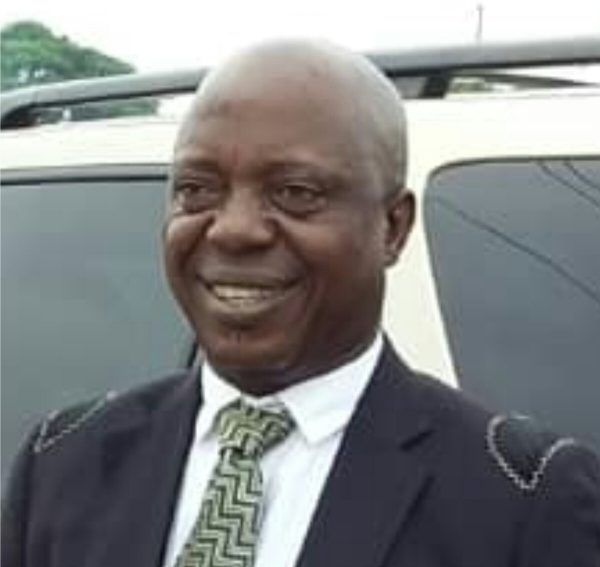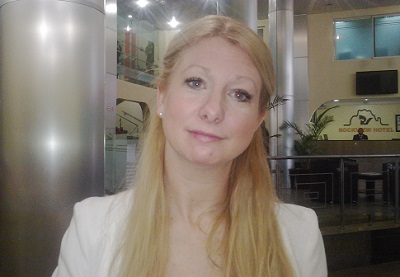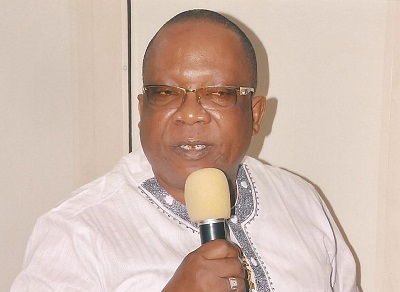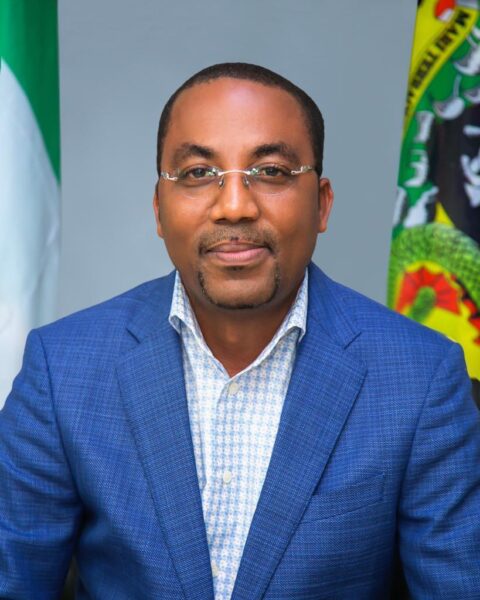Why Freight Forwarders Are Against Explosives Detectors At Airports – Chris

By Okuneye Moyosola
Paul Chris is the Chairman of Africa Association of Professional Freight Forwarders and Logistics of Nigeria (APFFLON), Airport Chapter. In this interview with MMS Plus, he highlighted the reasons why freight forwarders do not support the introduction of Explosives Trace Detectors (ETD) at the airport. He also stressed the need for government to make policies that will move the aviation sector forward.
How would you rate the airfreight clearance process as compared to the sea port?
Well, it depends on what you are picking and the correct information that you have in the document. Once it tallies with what you have on ground, then the process should be easy. If you send the e-manifest, you do what is called the capture and access and proceed to pay the duty. It is during the physical examination that you might have issues which could be that you have extra items than what was captured. But once you have the correct capture and what you have on the manifest is the same as what you have on ground, there wouldn’t be any issues.
Airport is a peculiar place because there are different people who are not regular importers. You have travelers who have excess cargo from where they are coming from so they can just do it as personal effect. The issue we have is that by the time it gets to this place, personal effect is not something that shouldn’t be more than just two items but here, travelers usually have different items from other people to deliver. We want to see how Customs can classify it so that when we have such shipments, it will easily scale through. When there is ambiguity that is when we have issues.
Do freight forwarders move perishable items regularly at the airport?
Of course, we move perishable items. But those who are in charge of it do not have offices at the airport and this is a problem. For example, for Quarantine, when you want to ship out vegetables, you have to go to the office of the local airport at Ikeja, to get the necessary stamps from various officers. However, In NAHCO, we have a big house which is empty. These officers could be moved so that it will be a one-stop shop. As the aircraft is about to take off, you can complete the documentation in a place. Going from one table to the other is quite tasking and even when you have done the necessary things, they will find faults. Also, if you don’t drop something on their table, your files will be delayed.
Can you tell us about some of the charges that freight forwarders pay at the airport?
Firstly, you assess yourself and pay duty. When you are released by the Customs, you go the ground handling companies to pay the handling charges. Those are the major charges that you pay. However, on operations, you have some miscellaneous. As you are stamping your documents on each table, you are dropping money because without that, you cannot move. No matter how perfect your documents are, they would detect errors just to take something from you. Its either they say the photocopy is not properly done or the ID card is not valid. If can give them some money, then everything will go smoothly. Once you pay the ground handling fees to NAHCO and SAHCO, you don’t have issues.
What’s the relationship like between freight forwarders and the ground handling companies (NAHCO and SAHCO)?
It is cordial and in the case of any issue, we will call them to resolve it. If they also have an issue on ground too, they call us and we meet. About two weeks ago, we shut down the export section because of the introduction of the Explosives Trace Detectors (ETD) payment. According to them, the European consortium of airliners has concluded that with the security situation in the country, they must examine every consignment to ensure that there is no explosive in it. In the meeting that we had, we saw different explosives and even envelopes, cartons and sacks had explosives in them and this was discovered through the ETD. The European airlines use machine to test the consignments to see if there are any dangerous items even after it has gone through the various examination and clearance by the government agencies.
The Explosives Trace Detectors (ETD) is a new system to ensure safety of the people and properties on the aircraft. Why are freight forwarders against the whole process?
It is because it slows down the process and it could also be seen as duplication of functions. In this profession, the freight forwarders are the first line of security. I cannot collect something that I know is harmful to people and aircraft. The government agencies are also involved in checking the consignments.
If they have done the examination, then why do they have to introduce the ETD? Is it that the European airlines do not have trust in the Nigerian system? It is still the same Nigerians that are still operating the machine, so is there any difference? What are we afraid of? Since the beginning of the security consciousness in the world, I don’t think Nigeria has been a threat to the world. Nothing has moved from Nigeria and there was alarm that the product was harmful.
What are the expectations of freight forwarders from this new administration?
Putting pegs in round holes is what we are expecting. We need those who want to move the country’s aviation sector forward. The government should ensure that the laws made are enforced. For example, the Ease of Doing Business from the office of the Vice President, we expect them to assess the level of conformity of the policy.
How has the activities at the airport been for freight forwarders in the last few years?
The activities have always been with improvements these days because of the Single Window System and the new introduction by Customs where we have a smooth clearing process. Unlike before, it was manual where you wait for dispatch and others. However, you can now assess yourself on the system and after examination, Customs will release your shipments. We usually wait for examination and result before going for dispatch before now. Now, it is one stop shop. This could be classified as e-freight because prior to this time, you must have the consignment on ground before you can get the manifest. However, on the lading point from the destination, the airlines are able to key into the single window system of customs and they share the manifest online. As anything is moving from any destination, Customs here in Nigeria is already aware.
What are the challenges in freight forwarding at the airport?
The challenges that we face are enormous. We have the Customs as the controllers of the warehouse and other government agencies who in conjunction do a joint examination and you need all their endorsement before you can pick your consignments. However, the major challenge we are having now is coming from the Customs. We don’t know who is in charge. You will see the various squads such as the DC squad, Abuja squad, CAC squad, FOU and the task force. Recently, the Customs Police came in too. We do not know who does the final job. Prior to this time, once your job is released by a command, you take it to the destination for your clients. But these days, there are multiple checks on the road. Everyone seems to be involved and the whole process is now clumsy. We need to have a review to know if the various governments knows what is really happening.
By virtue of where Nigeria is, the country should be a hub in Africa, where we are supposed to be involved in transshipment of goods. As the goods come into Nigeria, you clear it and ship back to the various destinations. Before you know it, they will tell you that you cannot do transshipment. However, with the position of Nigeria, we are at advantage to transshipment. It is just like Cotonou where you buy cars cheaply and bring into Nigeria. We are supposed to service the west coast and Africa.
How did you venture into the freight forwarding business?
I started as a delivery clerk in the 90s, and I had to go back to school. Through the various activities in the school, I was able to know more about international trade and everything attached to it. I developed interest in freight forwarding and I decided to choose that field as a career.






